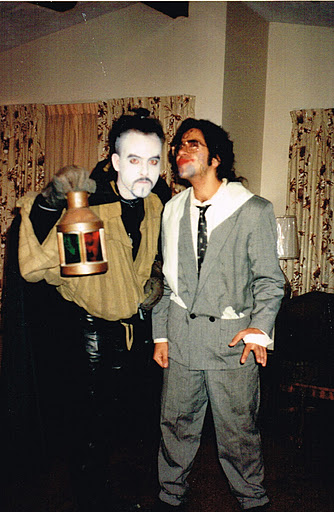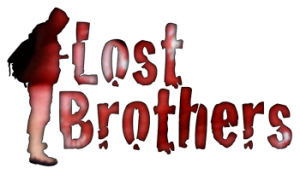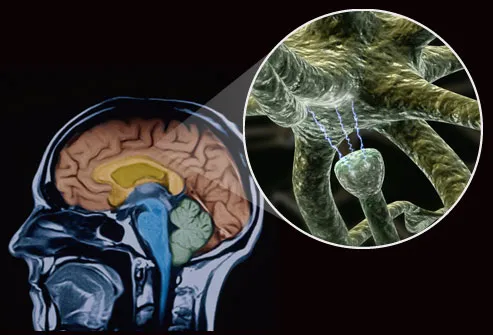As an obsessive-compulsive binge eater, the author feels it’s only proper that he (cough) weigh in (cough) on the notion that regulating junk food might help. Here’s why the answer is probably not.
Since I know what it’s like to be deep in the muck of a binge-eating addiction, my wife thought I might find interest in an article from The Environment Report suggesting that the regulation of foods that are bad for you — same way as with cigarettes — might help some sufferers.
The cattle prod for this item is a new book called “The End of Overeating.” The author is David A. Kessler, MD, and a former commissioner of the US Food and Drug Administration under presidents George H. W. Bush and Bill Clinton. I actually have a lot of respect for this guy, whose tenure included the successful push to enact regulations requiring standardized Nutrition Facts labels on food. That, in my opinion, was a huge win for those of us who want truth in advertising.
In “The End of Overeating,” Kessler makes a compelling argument: Foods high in fat, salt and sugar alter the brain’s chemistry in ways that compel people to overeat. “Much of the scientific research around overeating has been physiology — what’s going on in our body,” The Washington Post quoted him as saying in the story “David Kessler: Fat, Salt and Sugar Alter Brain Chemistry, Make Us Eat Junk Food.”

The real question is what’s going on in the brain, Kessler says.
His theory on food as an addictive substance is as on the mark as you can get. Trust me. I’ve lived it. Binge eating is all about addiction for me. It’s tied directly into the same corner of the brain where my OCD resides.
He is also right that sugar, salt and fat are addictive substances, though for a lot of people, the components of our poison boil down to sugar and flour. Of course, most of the food that has flour and sugar also tends to be high in salt and fat.
The first and most important tool in my OA recovery program is a plan of eating. Flour and sugar are off the table — period. Almost everything I eat goes on a little scale. 4 ounces protein, 4 ounces raw vegetable, 6 ounces cooked vegetable, 2 ounces potato or brown rice, etc. Every morning at 6:15 I call my sponsor, someone who hears my food plan for each day and gives me the necessary kick in the ass.
But salt and fat are not forbidden for me. In fact, I’m allowed to substitute 4 ounces of meat with 2 ounces of cheese or nuts.
To some, this may sound like a typical fad diet, but people in OA have used a plan like this since the beginning. And the plan isn’t the same for everyone. If you have diabetes, for example, removing every scrap of flour from the diet isn’t usually an option. No matter. The only requirement of the program is to stop eating compulsively, no matter how you get there.
This isn’t something I pursued to drop 65 pounds, though I did lose that amount pretty quickly. This is a food plan for life — a key to my getting all the nutrition I need and nothing more. Just as an alcoholic must put down the booze or a narcotics addict has to put down the pills, I have to put down the flour and sugar.
This is the plan that got me out of the darkest days of addictive behavior and I’m a true believer.
Flour and sugar mixed together becomes a toxin that knocks the fluids in my brain out of balance. Kessler’s research is definitely in line with what’s happened to me.
But the idea of regulating food the same way as something like cigarettes? It won’t do much good.
It certainly couldn’t hurt. The nutrition labels at the very least gave us an education on what we put in our bodies, and it’s been especially helpful to parents who are trying to raise their kids healthy. Regulating cigarettes has certainly made it harder for minors to buy them.
But for the true addict, regulation is a joke.
Knowing what’s in junk food won’t keep the addict away. I always read the labels AFTER binging on the item in the package. And the labels have done nothing to curb the child obesity pandemic.
If you smoke, it’s certainly more expensive to buy a pack than it used to be. But if you crave the nicotine, you’ll find a way to get your fix. It’s the same with drugs, and with food.
I’m going to read Kessler’s book because it sounds like he has some breakthrough findings that can help make people better.
But when someone suggests regulation as a solution, don’t ever believe ’em.
A suffering brain will always find a way to disregard the rules for the three minutes of rapture that follows the binge.






